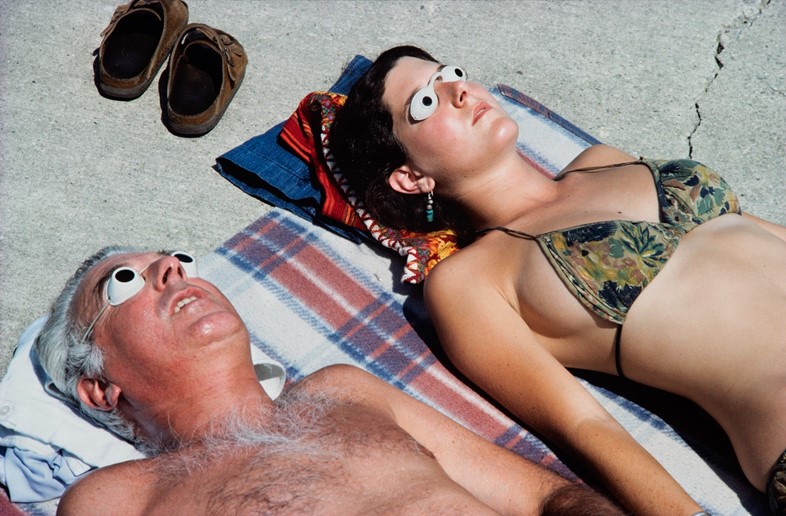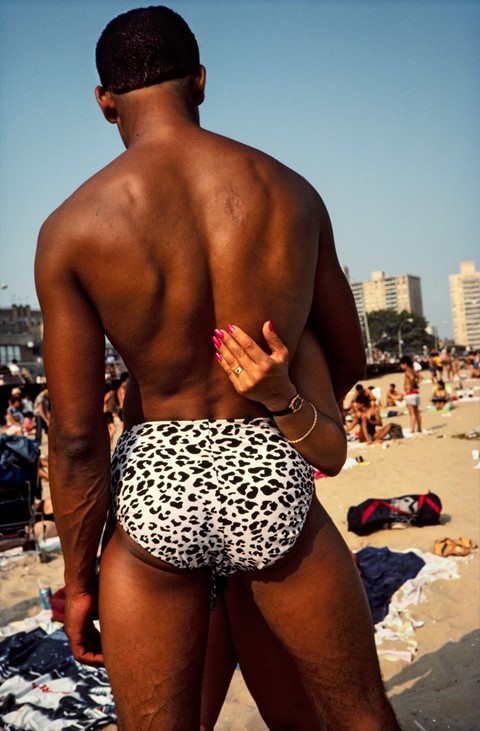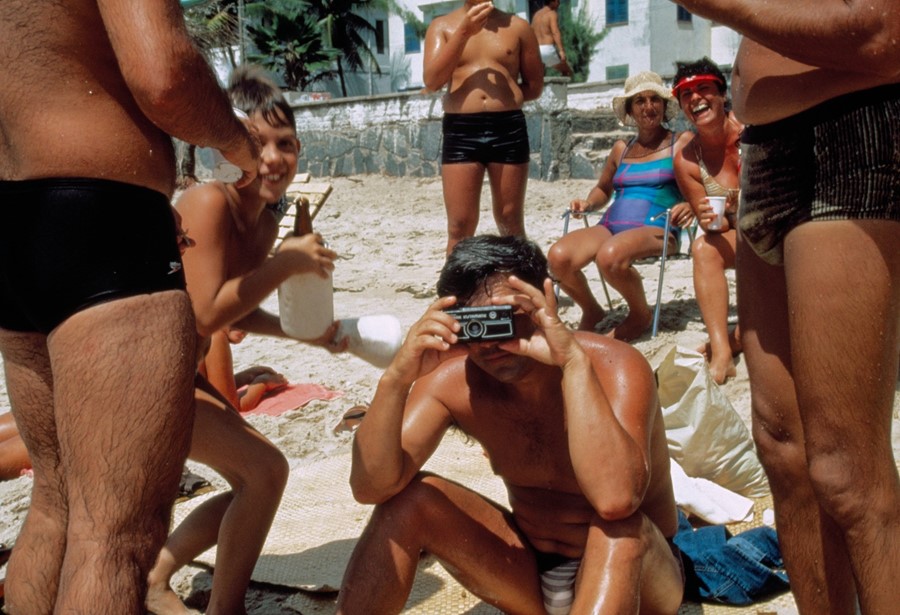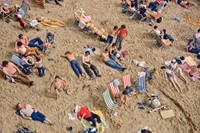As his new photo book Remembrances of Summers’ Past is published, the photographer talks about why “public beaches are remarkably democratic”
By 1969, more than half a million American men were drafted into the Armed Forces and sent to fight in Vietnam. Two weeks before shipping out, army infantryman Charles Traub came down with an illness and was subsequently discharged – a stroke of luck that changed his life forever.
With a new lease on life, Traub decided to pursue his passion for photography at the Chicago Institute of Design. “Photography was still ‘in the basement’ as they say, at the museums and other schools, and it was remarkable to be at a place where it was taken very seriously as an art form,” says Traub, who studied with luminaries including Aaron Siskind, Garry Winogrand, and Arthur Siegel.
Although the photography world was quite small, somewhat informal and highly unprofitable, its practitioners brought a deep sense of devotion, innovation and care to the form. “I learned the seriousness and possibilities that photography gives you as a witness to the world: [it’s] a way of understanding how to see and make something out of the chaos that is all around us,” says Traub. “That moved me a lot.”
During the 1970s Traub began crafting three series of black-and-white vignettes, Street, Parties, and Beach – the last of which he transformed into his first monograph in 1977. By that time, Traub was living in New York and working as director of Light Gallery, one of the only exhibition spaces dedicated to photography. After completing Beach, he devoted himself to colour photography, creating Lunchtime, a series of vibrant street portraits of New Yorkers at midday.
“But the beach was always there,” says Traub, who never stopped shooting scenes at the shore, capturing moments of unguarded sensuality, humour and languor. “The beach is the place where all of the self-consciousness of everyday life is let go,” he continues. “There is a physical display without inhibition and an intimacy that people would not allow in any other public place. Whether it’s Rio, Jamaica, Chicago, Los Angeles or New York City, public beaches are remarkably democratic. You don’t know who is who. They’re letting it all hang out. It’s a great escape and everybody is playful. They take the mask off and our humanism comes out.”

Although Traub didn’t set out to make this a lifelong project, the forces of fate revealed it as such – an amusing irony for a man who has no particular interest in lying in the sand or splashing in the surf himself. Now Traub revisits his travels over half a century in the new book, Remembrances of Summers’ Past (Interlocutor Press), a glorious celebration of the freedom that can only be found while frolicking half-naked along the water’s edge.
Under the golden rays of the summer sun, rippling flesh glistens and glows, straining against bits of fabric. There’s a sense of joy and abandon mixed with just the right splash of exhibitionism and voyeurism to keep things interesting. “A woman once told me you could go to the most secluded beach in Italy, lay out your towel, and sit down – and the next person who comes by will sit right next to you,” Traub says of the comfort many find in the presence of strangers. “There’s a certain kind of connection that people need. They want to be at the beach with other people.”
And more than that, many want to be seen and acknowledged, a desire that brilliantly lends itself to photography. Moving openly with his camera, Traub makes it a point to be seen, rather than creep about and sneak shots of people without their awareness. Some – like the man who full-on flashed his camera – go the full monty for a laugh, while others take delight in a quiet moment of mutual recognition.

While the proliferation of digital photography and social media platforms may make some reticent about having strangers take their picture, one thing remains the same: the image bears witness to a moment whose time will never come again. “Photography is the matrix for everything we evaluate in the world,” says Traub. “Whether it’s science or humanity, it all comes back to looking at the image in some way and I think that’s why photography is so powerful. We make pictures and grow up with them. They are our memories and the things we go back to, whether it’s a snapshot or a serious image. I don’t like the term ‘fine art photography.’ I think history will tell us what is art.”
Remembrances of Summers’ Past by Charles Traub is published by Interlocutor Press and is out now.






